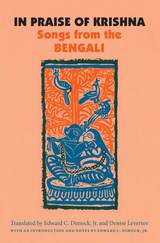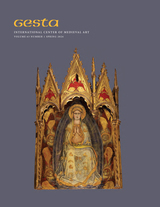


A canonical great poem, or mahākāvya, of the Sanskrit canon, depicting a well-known episode from the Mahābhārata.
Magha’s The Killing of Shishupala, written in the seventh century, is a celebrated example of the Sanskrit genre known as mahākāvya, or great poem. This adaptation from the epic Mahābhārata tells the story of Shishupala, who disrupts Yudhishthira’s coronation by refusing to honor Krishna, the king’s principal ally and a manifestation of divinity. When Shishupala challenges Krishna to combat, he is immediately beheaded.
Magha, who was likely a court poet in western India, draws on the rich stylistic resources of Sanskrit poetry to imbue his work with unparalleled sophistication. He expands the narrative’s cosmic implications through elaborate depictions of the natural world and intense erotic sensuality, mixing myth and classical erudition with scenes of political debate and battlefield slaughter. Krishna is variously portrayed as refined prince, formidable warrior, and incarnation of the god Vishnu protecting the world from demonic threat.
With this translation of The Killing of Shishupala, presented alongside the original text in the Devanagari script, English readers for the first time gain access to a masterwork that has dazzled Indian audiences for a thousand years.

“John Stratton Hawley miraculously manages to braid the charged erotic and divine qualities of Krishna, the many-named god, while introducing us—with subtle occasional rhyme—to a vividly particularized world of prayers and crocodile earrings, spiritual longing and love-struck bees.”
—Forrest Gander, winner of the Pulitzer Prize for Poetry
An award-winning translation of Hindi verses composed by one of India’s treasured poets.
The blind poet Surdas has been regarded as the epitome of artistry in Hindi verse from the end of the sixteenth century, when he lived, to the present day. His fame rests upon his remarkable refashioning of the widely known narrative of the Hindu deity Krishna and his lover Radha into lyrics that are at once elegant and approachable. Surdas’s popularity led to the proliferation, through an energetic oral tradition, of poems ascribed to him, known collectively as the Sūrsāgar.
This award-winning translation reconstructs the early tradition of Surdas’s verse—the poems that were known to the singers of Surdas’s own time as his. Here Surdas stands out with a clarity never before achieved.

Surdas has been regarded as the epitome of artistry in Old Hindi religious poetry from the end of the sixteenth century, when he lived, to the present day. His fame rests upon his remarkable refashioning of the widely known narrative of the cowherd deity Krishna and his lover Radha into lyrics that are at once elegant and approachable. Surdas’s popularity led to the proliferation, through an energetic oral tradition, of poems ascribed to him, known as the Sūrsāgar.
Sur’s Ocean: Poems from the Early Tradition presents a dramatically new edition in Devanagari script and a lyrical English translation. This remarkable volume reconstructs the early tradition of Surdas’s verse—the 433 poems that were known to the singers of Surdas’s own time as his. Here Surdas stands out with a clarity never before achieved.
The Murty Classical Library of India makes available original texts and modern English translations of the masterpieces of literature and thought from across the whole spectrum of Indic languages over the past two millennia in the most authoritative and accessible formats on offer anywhere.

A thousand-year-old story of Krishna and his wife Satyabhama retold by the most famous court poet of the Vijayanagara Empire.
Legend has it that the sixteenth-century Telugu poet Nandi Timmana composed Theft of a Tree, or Pārijātāpaharaṇamu, which he based on a popular millennium-old tale, to help the wife of Krishnadevaraya, king of the south Indian Vijayanagara Empire, win back her husband’s affections.
Theft of a Tree recounts how Krishna stole the pārijāta, a wish-granting tree, from the garden of Indra, king of the gods. Krishna does so to please his favorite wife, Satyabhama, who is upset when he gifts his chief queen a single divine flower. After battling Indra, Krishna plants the tree for Satyabhama—but she must perform a rite temporarily relinquishing it and her husband to enjoy endless happiness. The poem’s narrative unity, which was unprecedented in the literary tradition, prefigures the modern Telugu novel.
Theft of a Tree is presented here in the Telugu script alongside the first English translation.
READERS
Browse our collection.
PUBLISHERS
See BiblioVault's publisher services.
STUDENT SERVICES
Files for college accessibility offices.
UChicago Accessibility Resources
home | accessibility | search | about | contact us
BiblioVault ® 2001 - 2024
The University of Chicago Press









